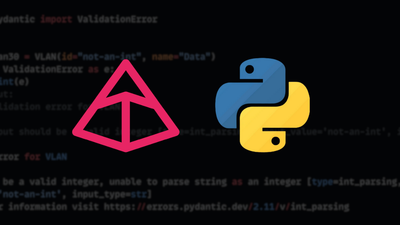Today I want to share with you a small tip that I regularly use to prevent having to write multiple else-if statements within my code. You may now be asking,
what's wrong with writing multiple else-if statements?
Well, to be fair, nothing. However, I will show you an alternative that will improve code readability and also help you reduce your code a bit.
So, let's look at an example. Let's say we have the following function. That will return us the vendor for a platform based on the input provided.
def get_vendor(platform):
if platform == "asr":
return "cisco"
elif platform == "csr":
return "cisco"
elif platform == "qfx":
return "juniper"
elif platform == "mx":
return "juniper"
else:
return "no platform found"
>>> get_vendor(platform="csr")
cisco
This code is Ok, but there is another way. Instead of using multiple else if statements, create a dictionary and perform a lookup against the dictionary. Like so:
def get_vendor(platform):
platform_to_vendor = {
"asr": "cisco",
"csr": "cisco",
"qfx": "juniper",
"mx": "juniper",
}
return platform_to_vendor.get(platform, "no platform found")
>>> get_vendor(platform="csr")
cisco
And well, that's it; as you can see, the code is cleaner and easier to read. Good stuff!











